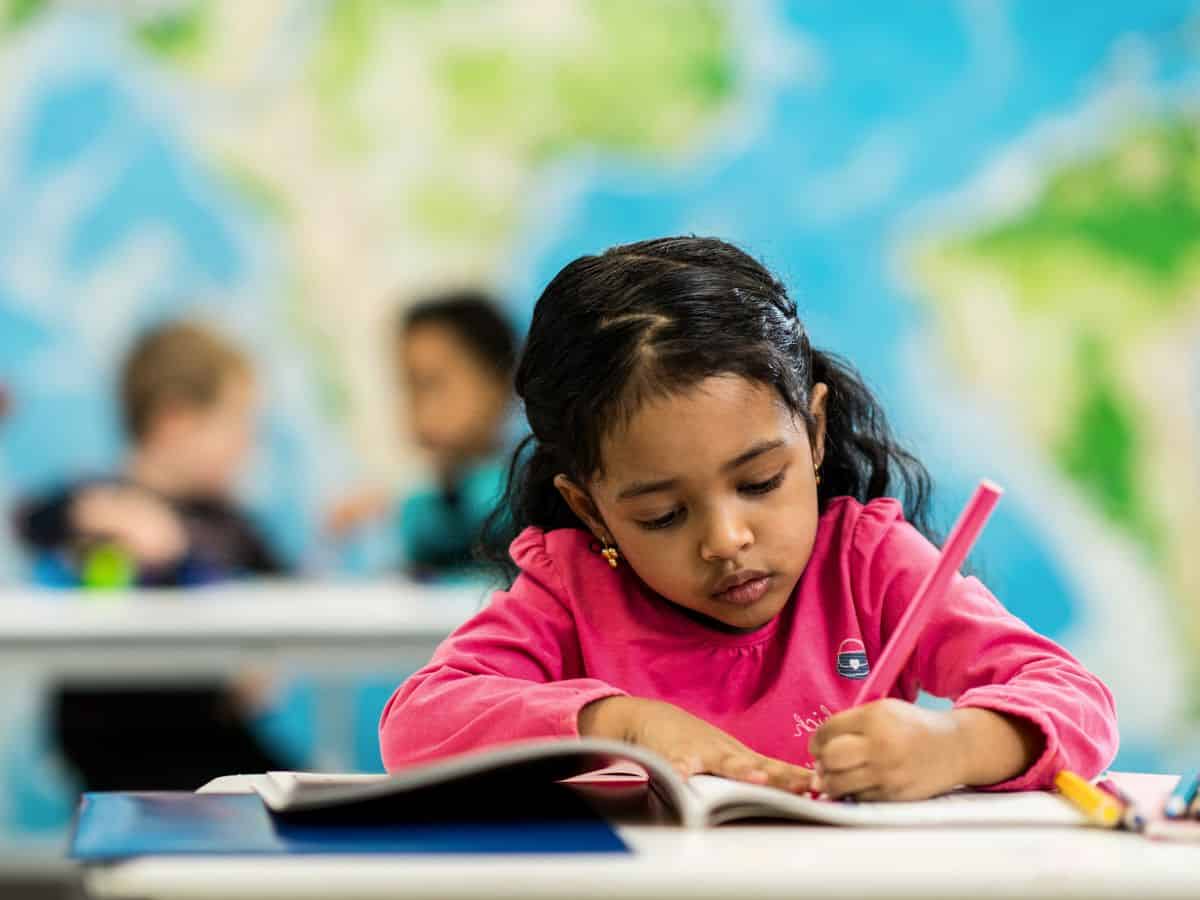
Dubai: Dubai’s Knowledge and Human Development Authority (KHDA) has mandated Arabic education for children up to six years at all private schools and early childhood centres, including Indian institutions.
This initiative aims to develop children’s Arabic language skills from an early age, making learning both engaging and culturally enriching, while also fostering pride in Emirati culture, language, and heritage.
The policy will come into effect in September 2025 for schools that start their academic year in September, and in April 2026 for schools that begin in April.
Implementation will be phased, with the first phase starting in September 2025, focusing on children aged four to six. Subsequent phases will gradually expand the requirement to cover all children from birth to six years old.
The policy introduces innovative teaching methods that prioritise student engagement:
- One-third of instructional time will involve Arabic language teachers
- Learning activities will emphasise cultural relevance and interactivity
- Different teaching models will cater to both native and non-native Arabic speakers
- Play-based and inquiry-driven teaching methods will be central
KHDA highlights two essential success factors for this initiative:
- Teachers must possess the necessary qualifications and engage in ongoing professional development.
- Parents must actively support Arabic language development through home-based learning.
This new policy is a key component of Loughat Al Daad, one of the 28 initiatives within Dubai’s Education 33 strategy.
The term Daad refers to a letter and sound unique to the Arabic language, and Loughat Al Daad translates to “The Language of Daad.” This initiative aims to enhance Arabic language acquisition while deepening understanding of UAE culture and heritage.
Fatma Belrehif, CEO of the Education Quality Assurance Agency at KHDA, explained that fostering a love for the Arabic language from early childhood ensures that all children—whether Emirati, Arab, or non-native speakers—can fully immerse themselves in the UAE’s language and culture.
In addition, KHDA has updated the requirements for teaching national mandatory subjects, including Arabic, Islamic Education, Social Studies, and Moral Education, for students in Grade 1/Year 2 to Grade 12/Year 13 in Dubai private schools.
These updates include an increase in instructional time and changes in the language of instruction for Islamic Education, Social Studies, and Arabic for Arab students, as well as updates to UAE Social, Moral, and Cultural Studies for non-Arab students.



